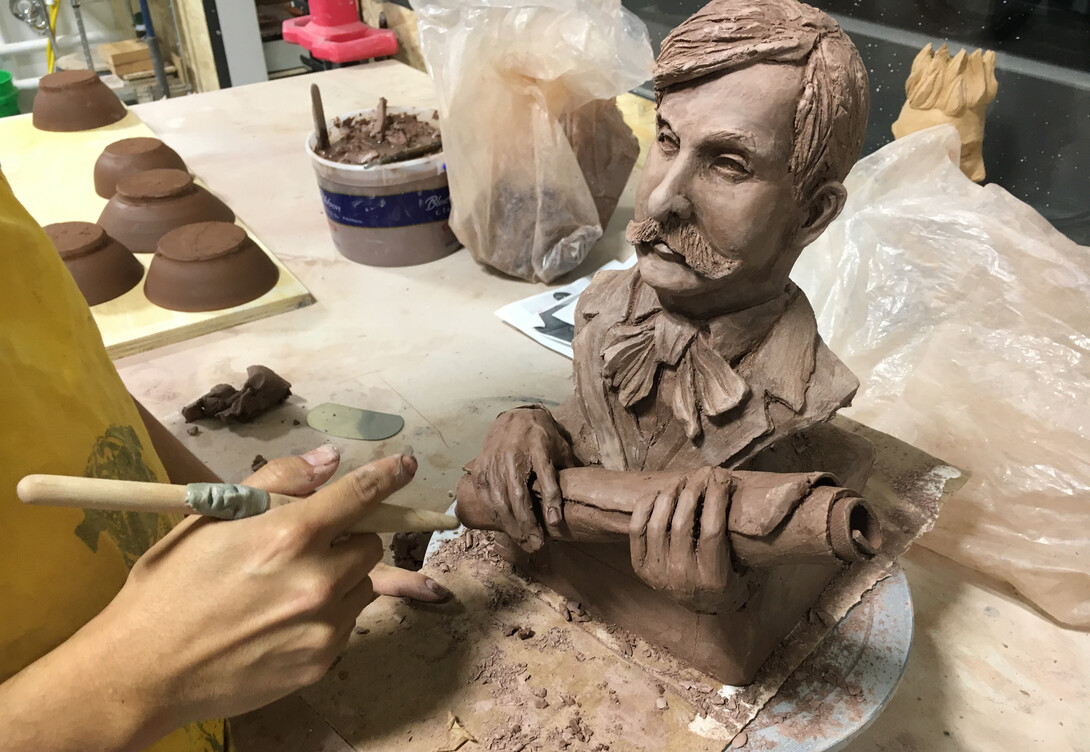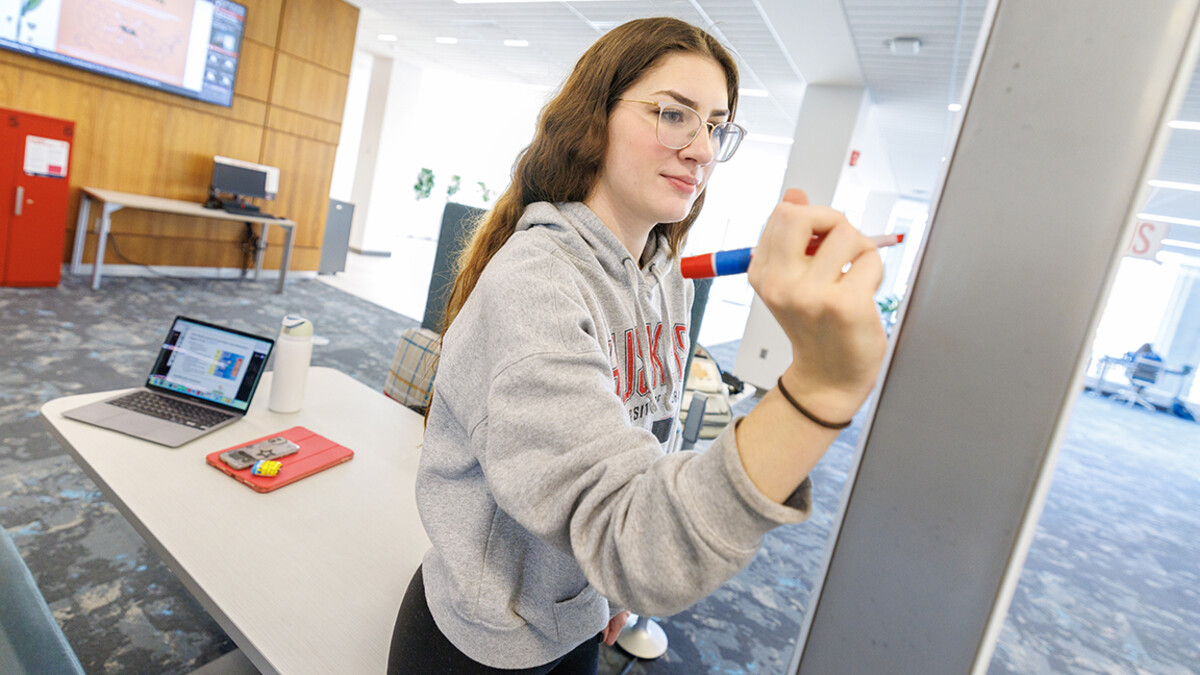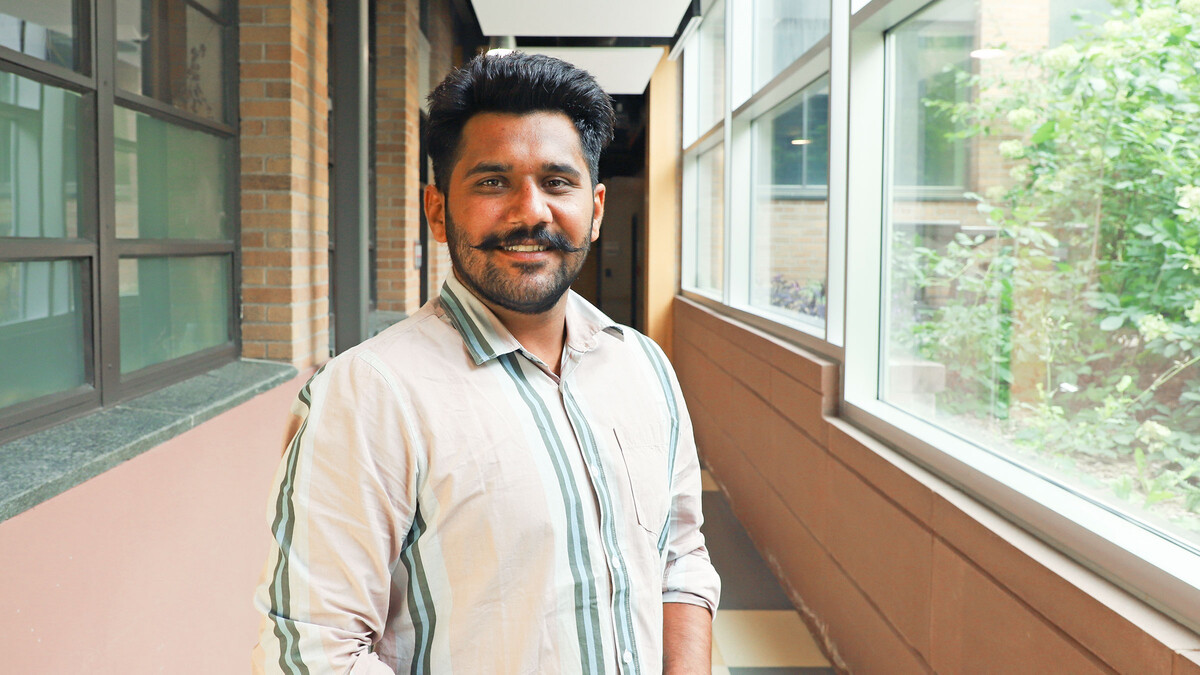
It has been another successful year for the University of Nebraska-Lincoln. In the spirit of the holiday season, we’re unwrapping the impact of the state’s flagship institution and taking a closer look at some highlights. Today, “Nebraska Unwrapped” is focusing on innovation. Other topics in the series include student experience, outreach and research.
Walking into the Nebraska Innovation Studio, the makerspace at Nebraska Innovation Campus, the first thing you notice is the smell of freshly cut wood – and the buzz of people at work.
A state-of-the-art wood shop is just to the right, completely visible through a floor-to-ceiling glass wall. On the left is a room housing a computer numerical control ShopBot router, an expensive high-tech tool that many craftspeople only dream of owning.
Nebraska Innovation Studio makes sought-after tools and work space available to University of Nebraska-Lincoln students and members of the public. For a small monthly fee, ranging from $15 to $55, studio members can use equipment like the full Adobe Creative Suite, a 14-foot long arm quilting machine, or a 19-inch planer.
As a result, the wood shop, the ceramics area, the 3-D printing lab, the computer lab and the textiles area are often hives of activity during the Innovation Studio’s hours of operation.
By day, 2016 Nebraska graduate Josef Lang works at Hudl, the nationally recognized athletic performance analysis firm based in Lincoln. Most evenings, he’s at Innovation Studio, chasing his passion to build architecturally designed furniture.
Lang said Innovation Studio is a key reason he stayed in Lincoln after getting his degree in sculpture, instead of taking a job in another state.
“I’ve been to other maker spaces, and I haven’t seen anything like this anywhere,” Lang said. “The membership cost is low and so much is available. The caliber of the tools and equipment is top-notch.”
Innovation Studio opened in 2015 and has grown from 300 members in its first year to more than 900 in 2017. During the month of November alone, members logged hours in the maker space 763 times.
“We have a lot of people coming in to make Christmas gifts right now,” David Martin, director of Innovation Studio, said.
Entrepreneurship is a year-‘round theme. Surin Kim, assistant professor of textiles, merchandising and fashion design and an extension specialist, schedules office hours at the studio to meet with budding entrepreneurs.
“A lot of creative people have ideas for a great product, but maybe don’t have a background in business,” Martin said. “Surin fills that role of advising.”
The studio also is building a statewide presence through a partnership with the Nebraska Library Commission to set up 30 temporary maker spaces in small-town libraries during the next three years. In December 2017, an Innovation Studio opened in Sidney, Nebraska, funded by a $300,000 National Science Foundation grant.
Martin expects membership to continue to grow exponentially, as he and studio manager Jerry Reif continue to promote the space and organize more workshops and community events. They’re also looking ahead to adding a metal shop when fundraising is completed. As a public and private partnership, the university leases the space and pays salaries and liability insurance, but equipment is purchased through donations.
“We’re excited to get the word out and get people in here,” Martin said. “Usually, once they become aware of the studio, they’re in awe at what’s offered and what’s possible.”
Here are more highlights of innovative activity at the University of Nebraska-Lincoln during 2017:
Stephen Barlow and colleagues in the Center for Brain, Biology and Behavior published the first in a series of studies demonstrating the effectiveness of the Galileo TAC-Cell Array as a first-line treatment for embolic stroke. It is a non-invasive treatment using pressurized air to stimulate nerves in the brain.
Surgery in space took one step closer to reality when U.S. astronaut Clayton Anderson used representative tasks to test a miniature surgical robot developed by Nebraska engineering professor Shane Farritor and Dmitry Oleynikov, professor of surgery at the University of Nebraska Medical Center.
Nebraska Innovation Campus won the international Emerging Research Park Award from the Association of University Research Parks, which recognizes parks that have operated fewer than 10 years. NIC won the award for its positive impact on affecting university research funding and recruitment of outstanding students, faculty and researchers.
A flu vaccine developed at the Nebraska Center for Virology provided broad and powerful protection in mice against influenza, showing promise for a future universal vaccine.







